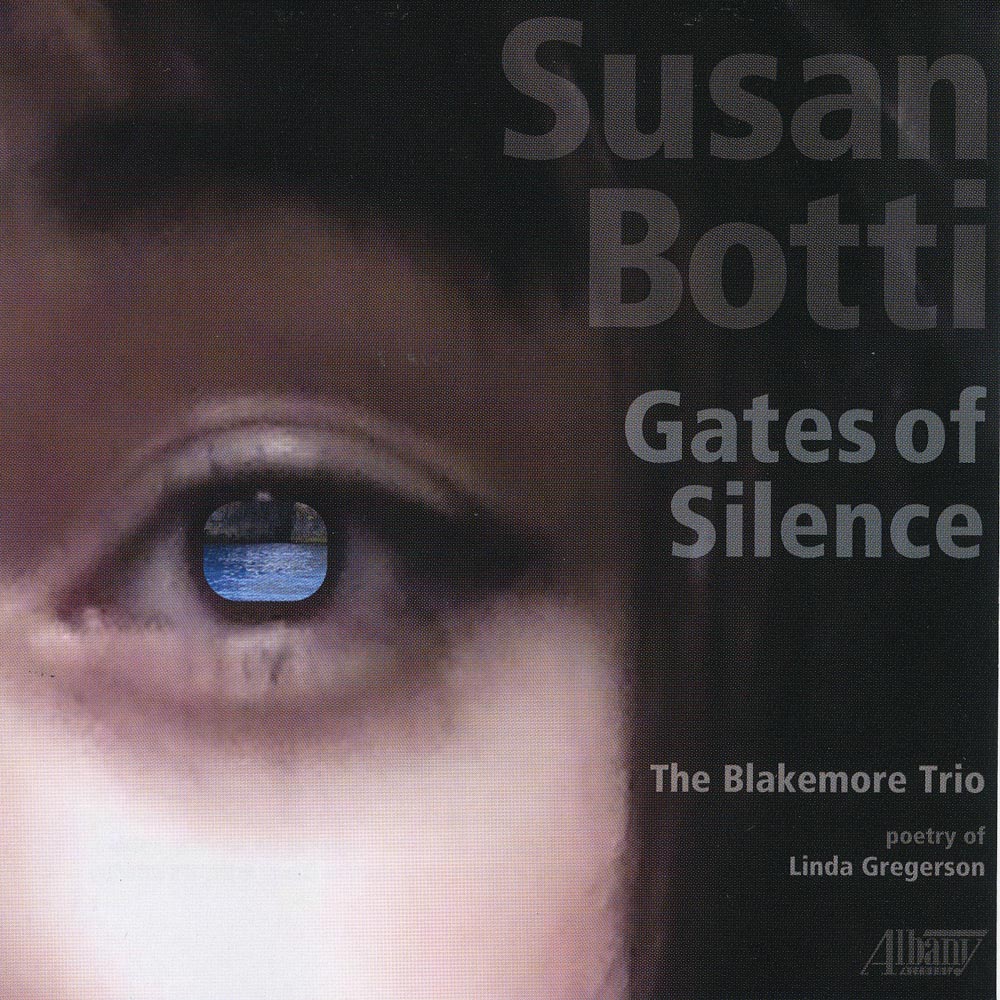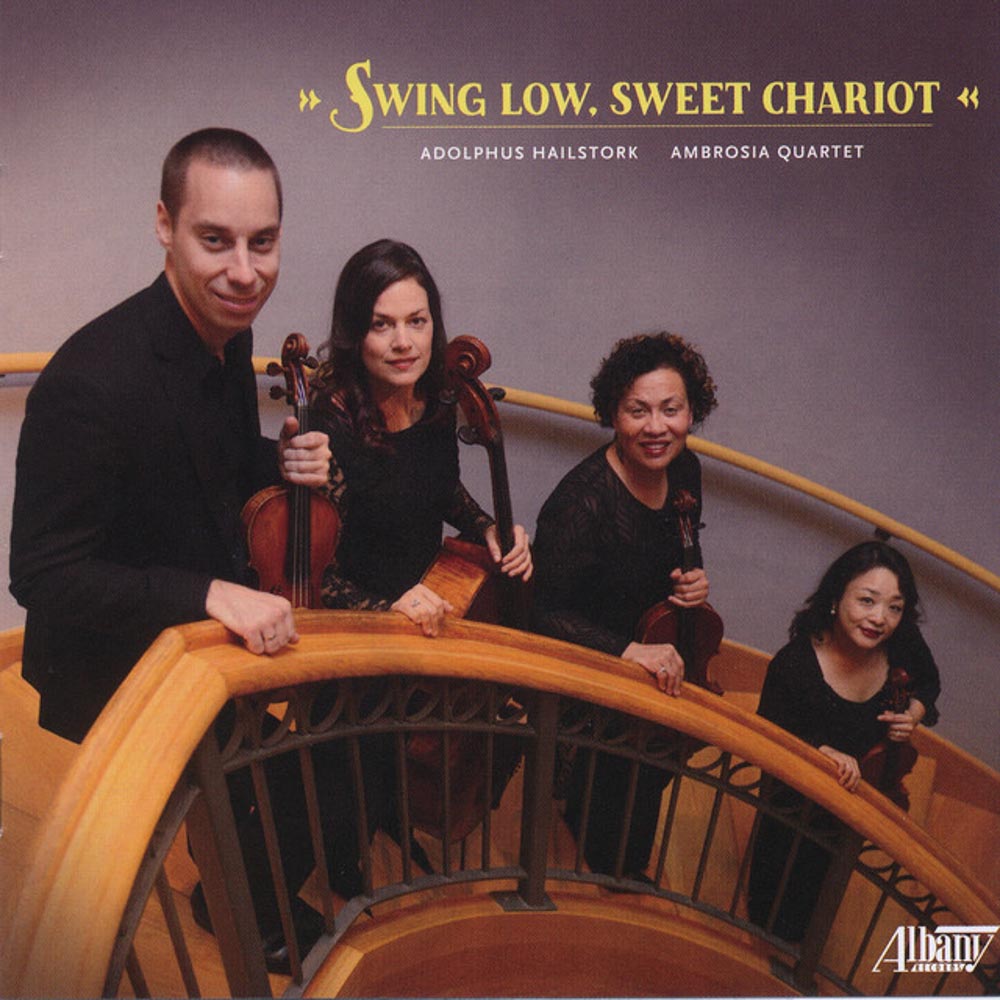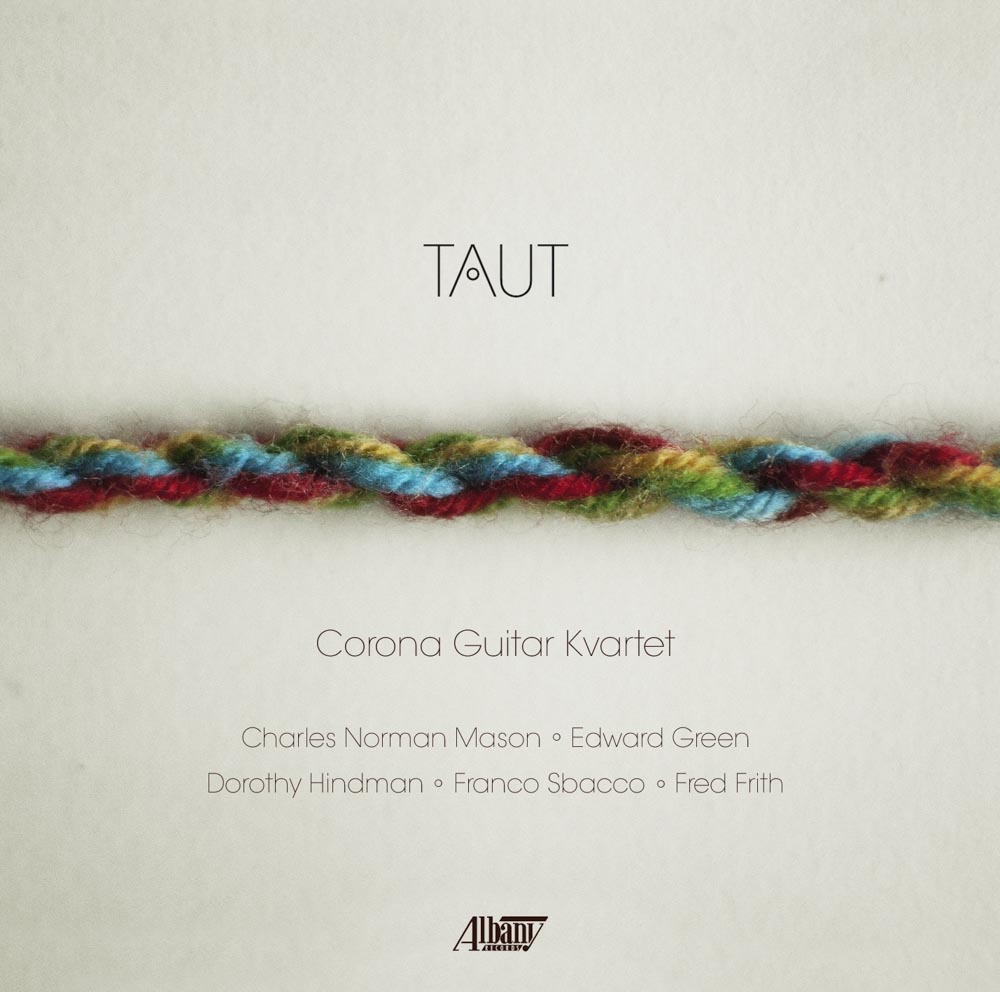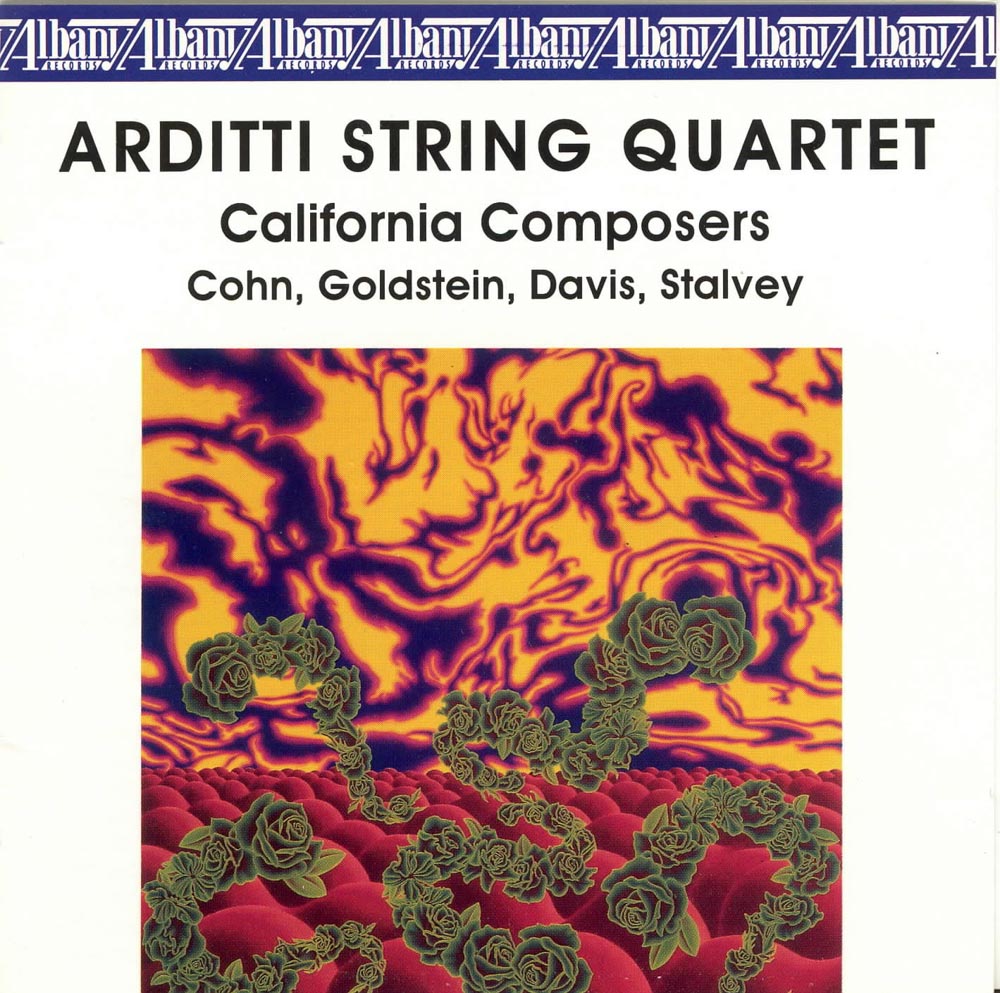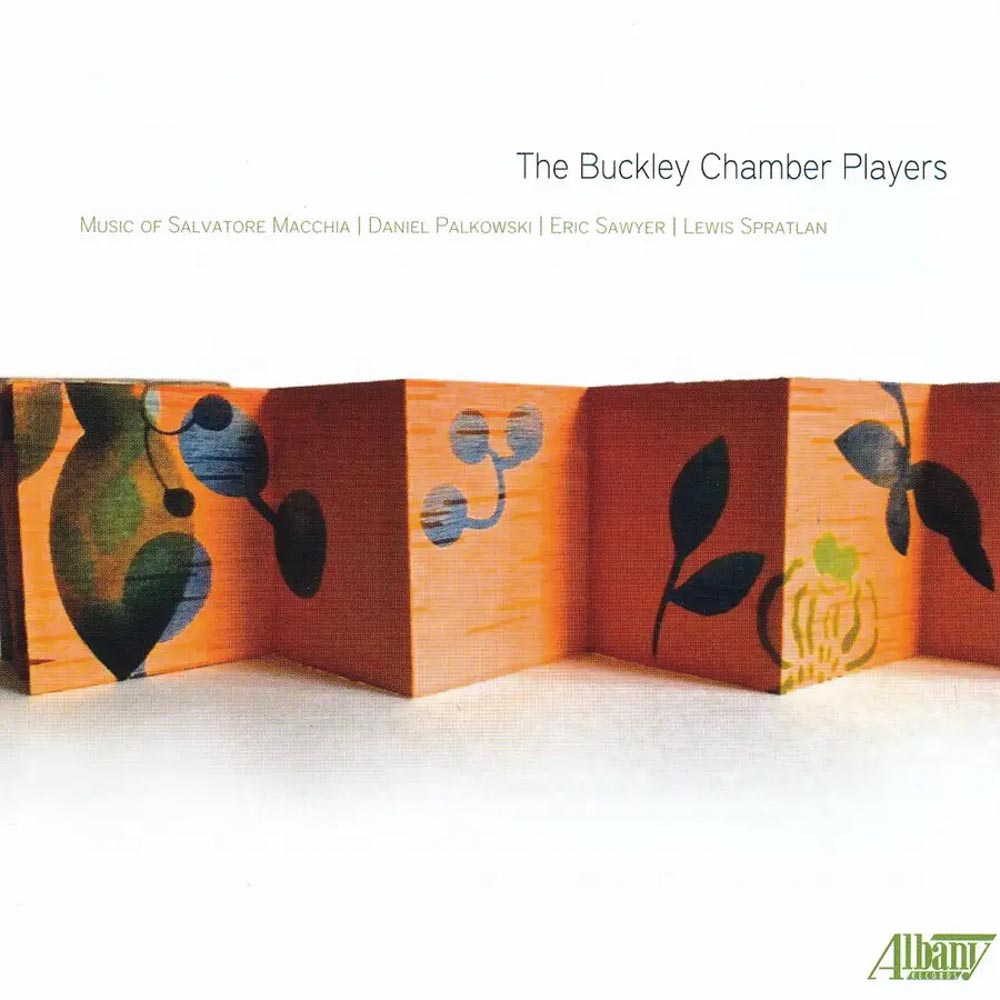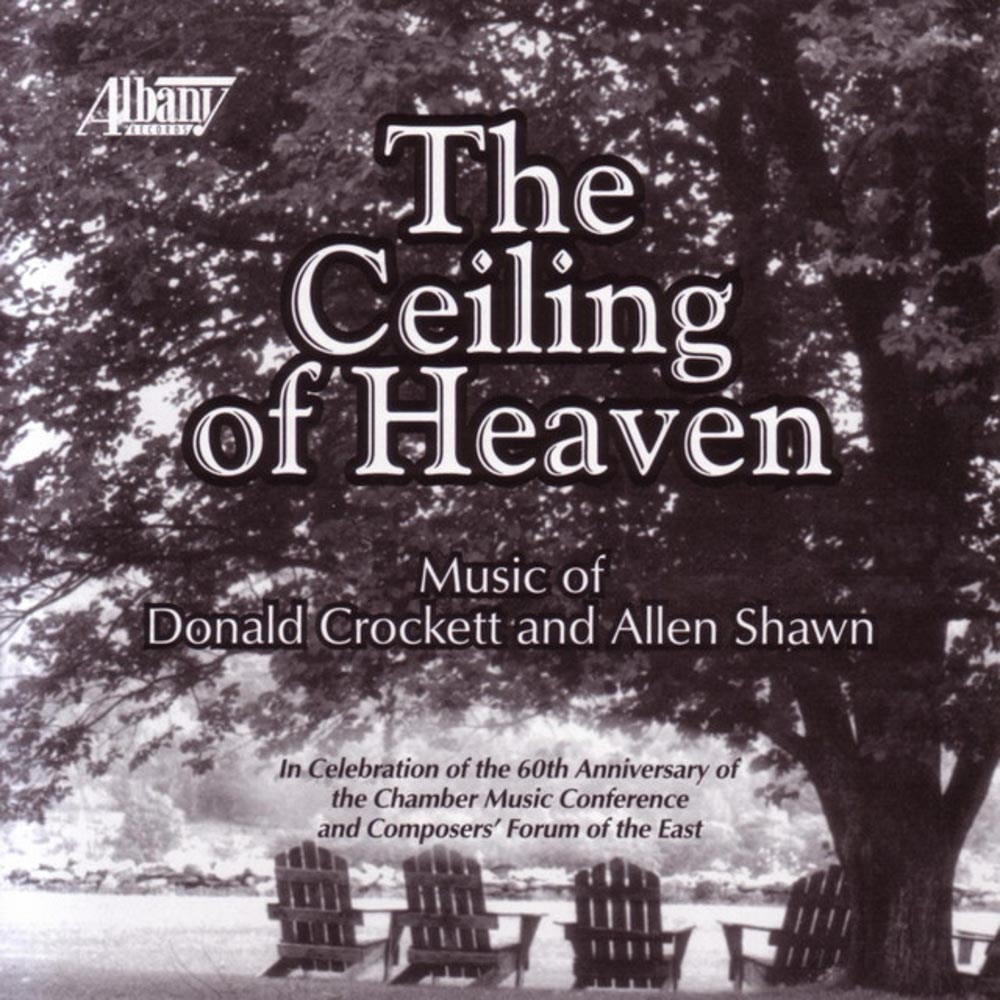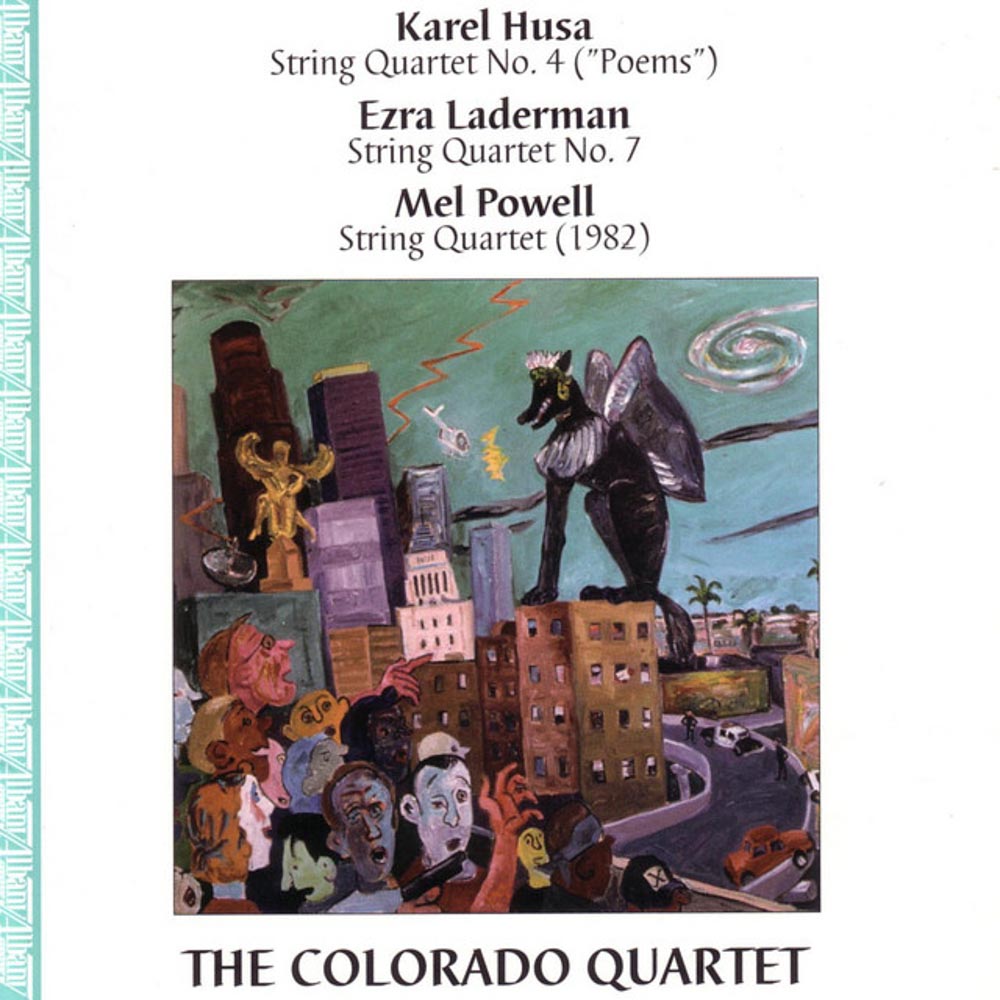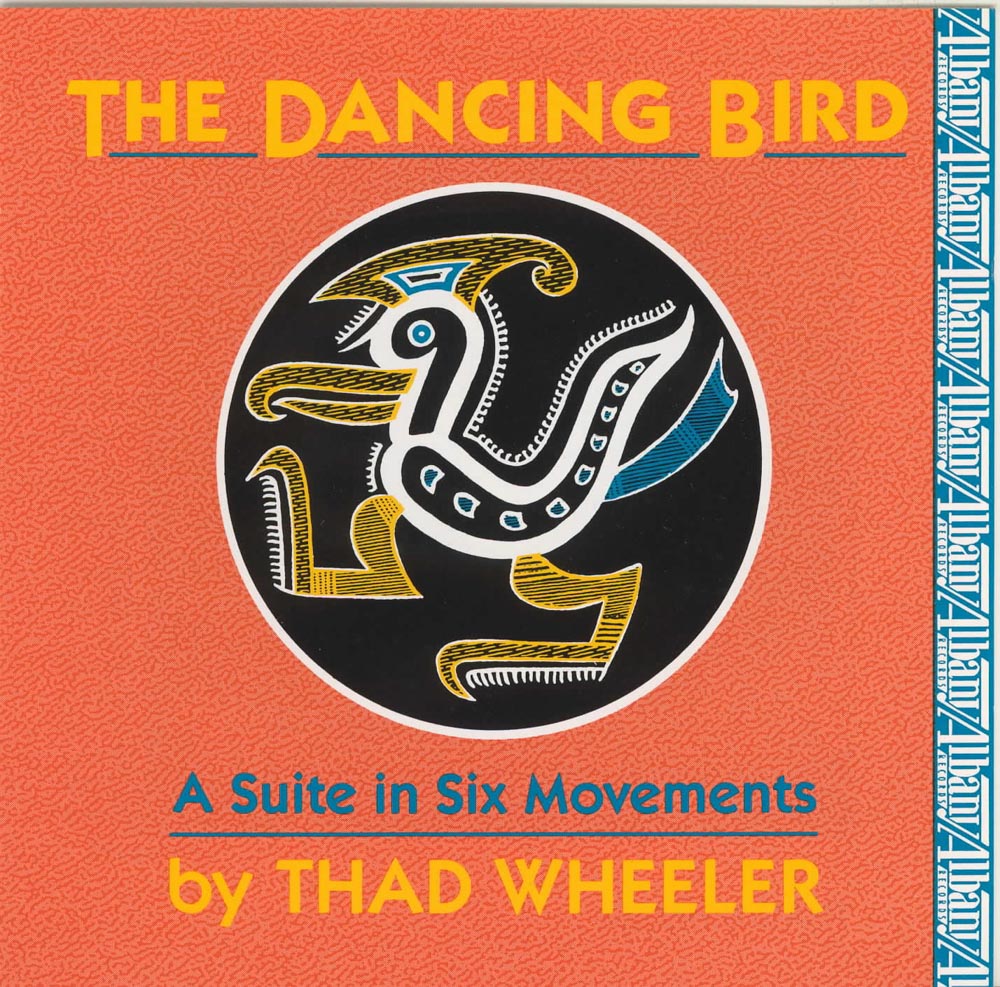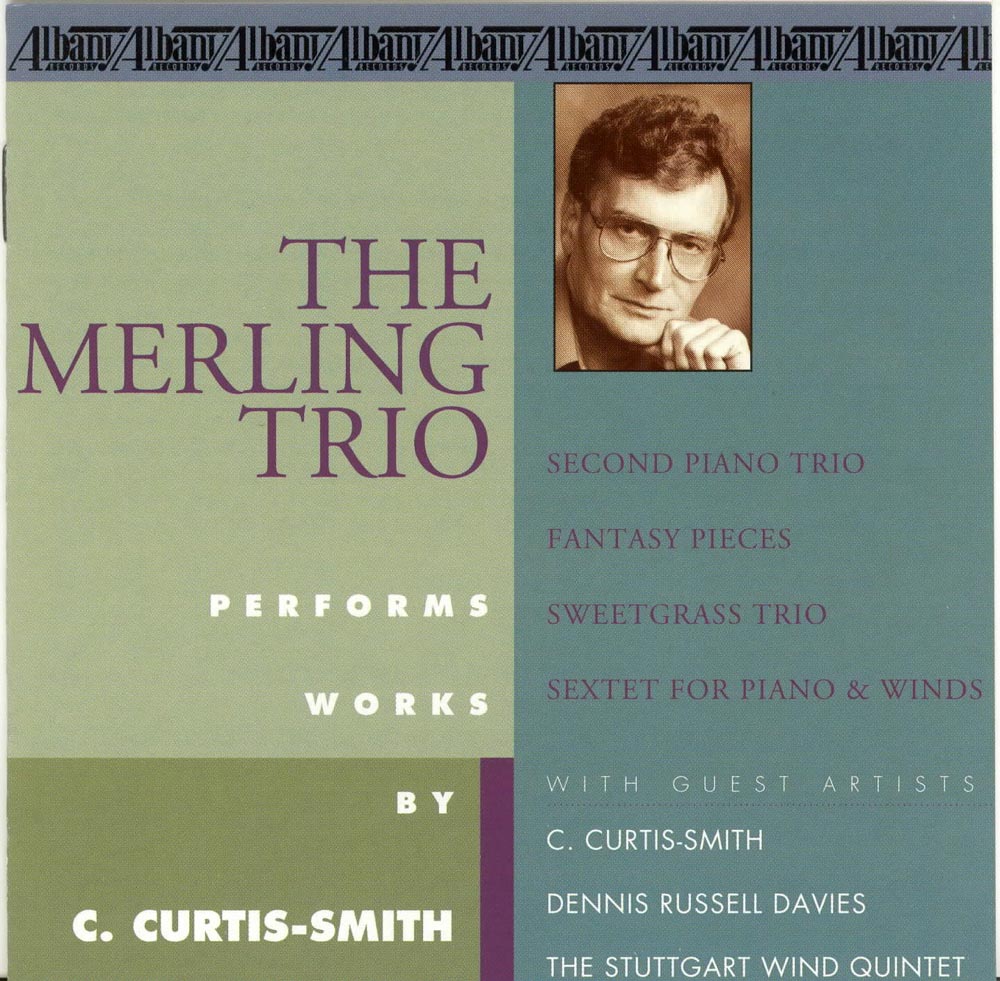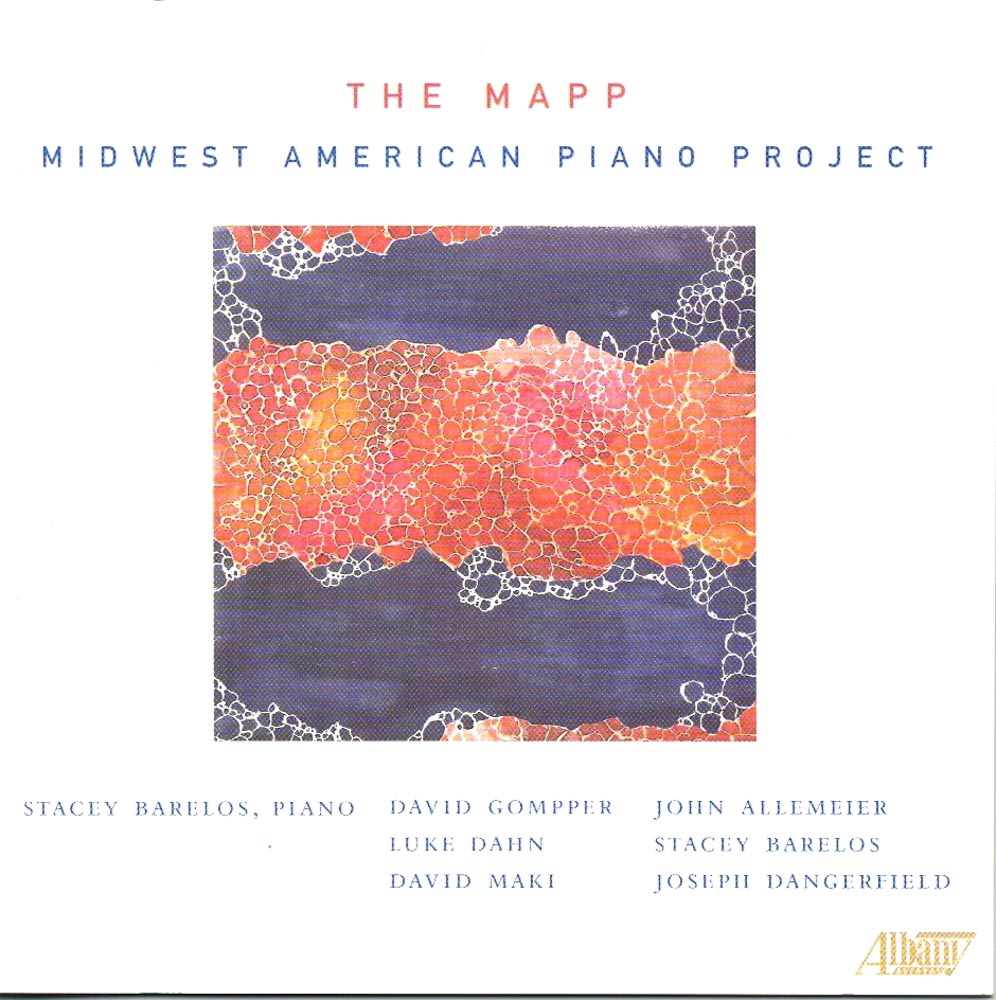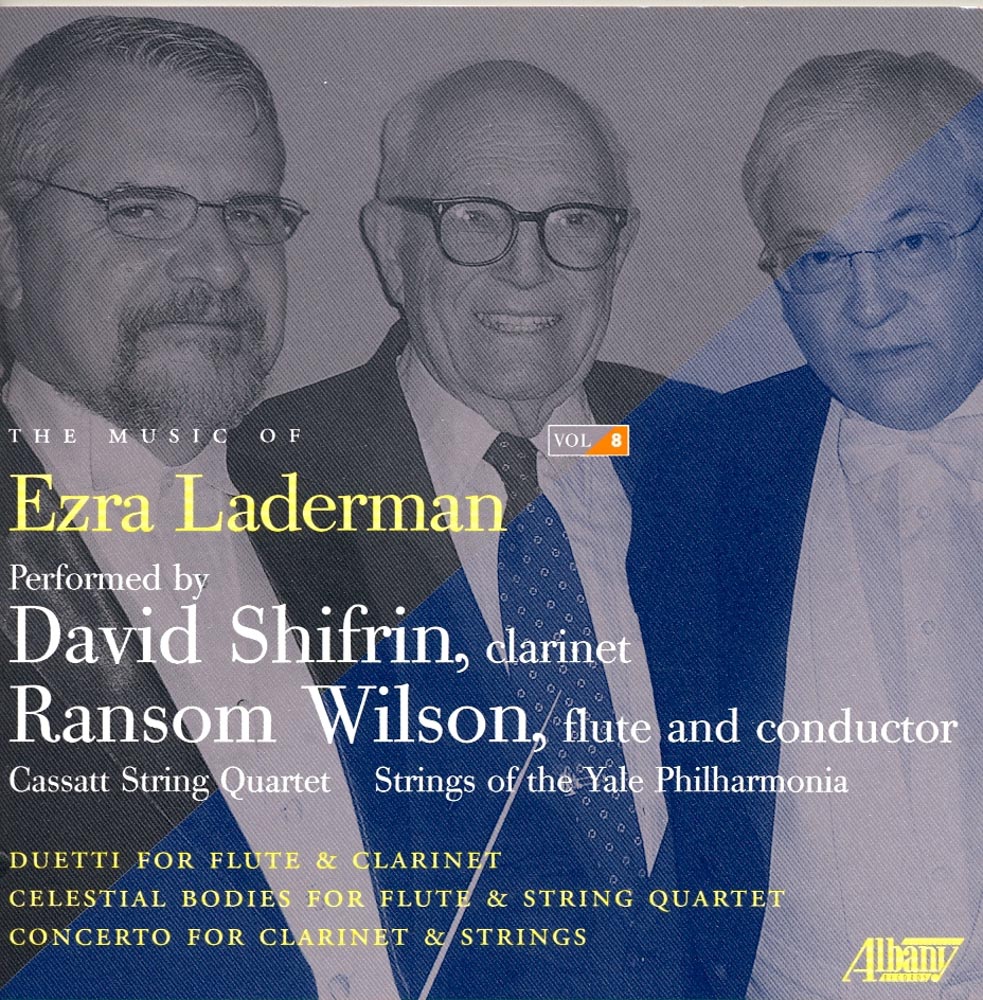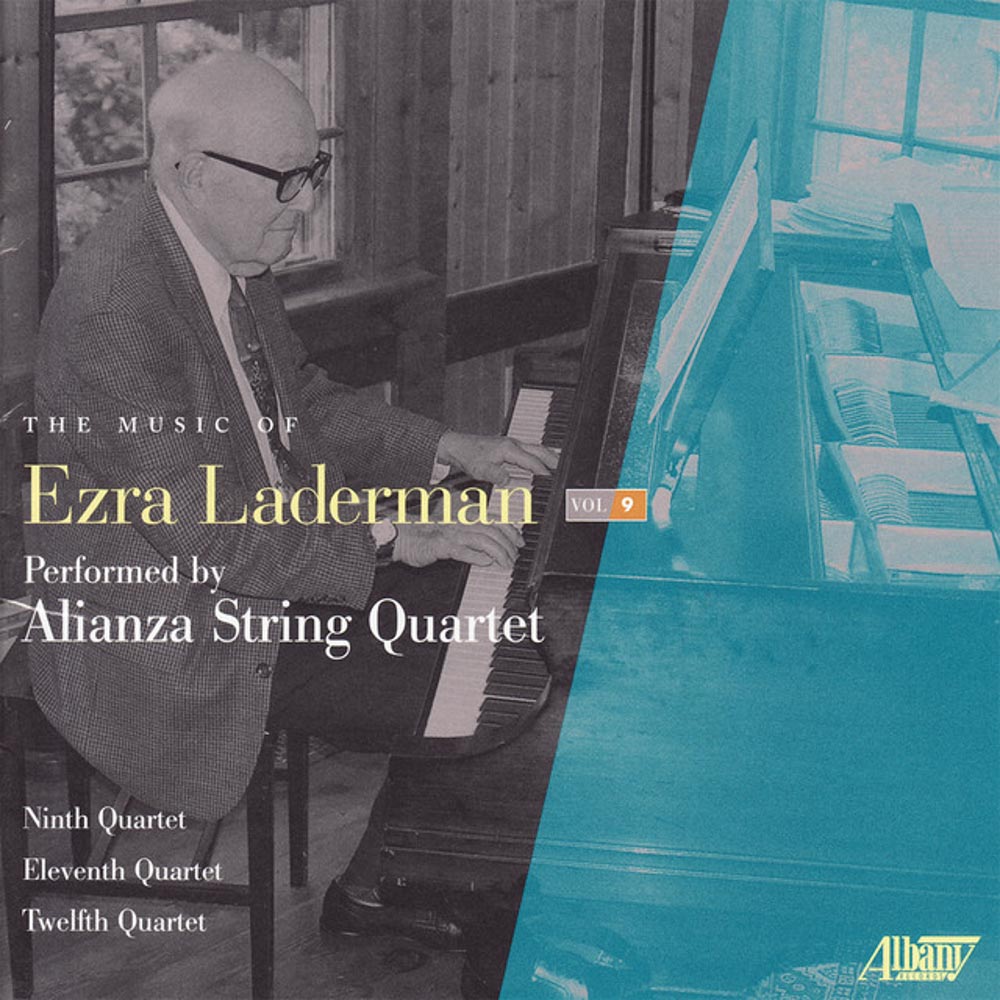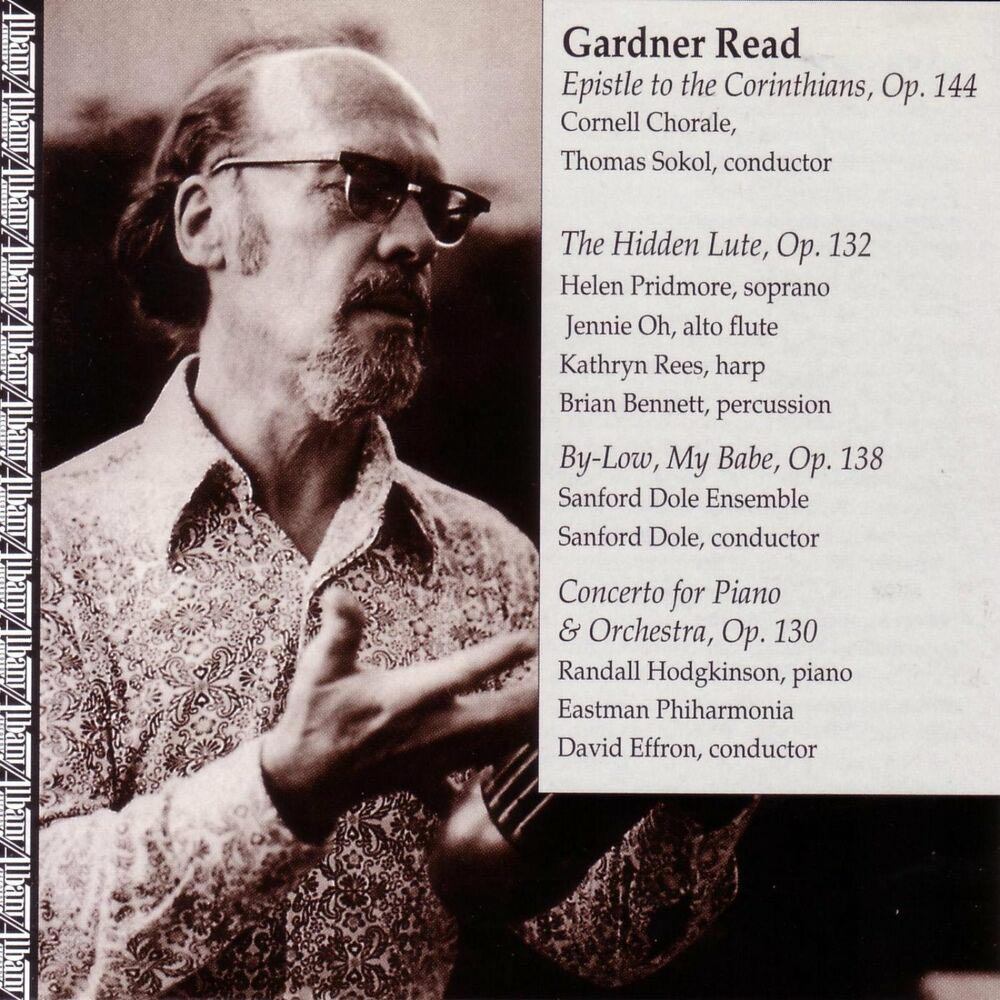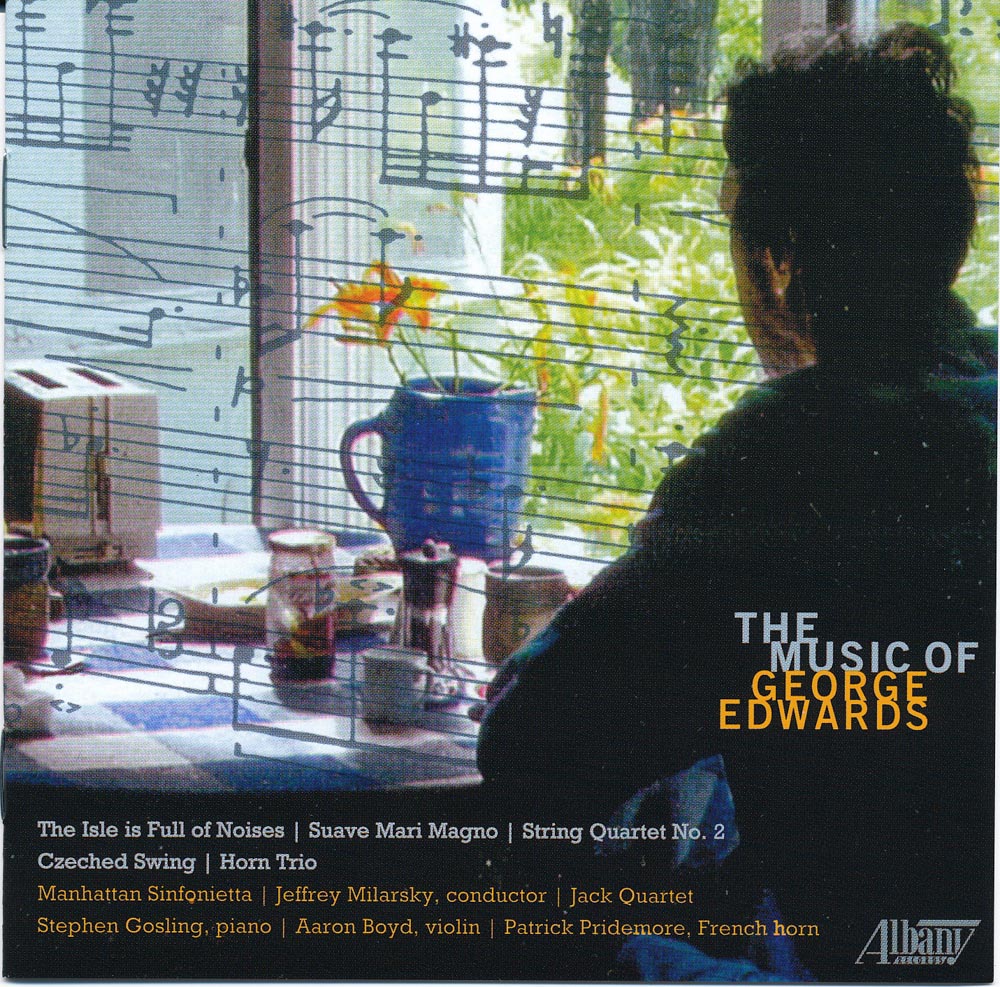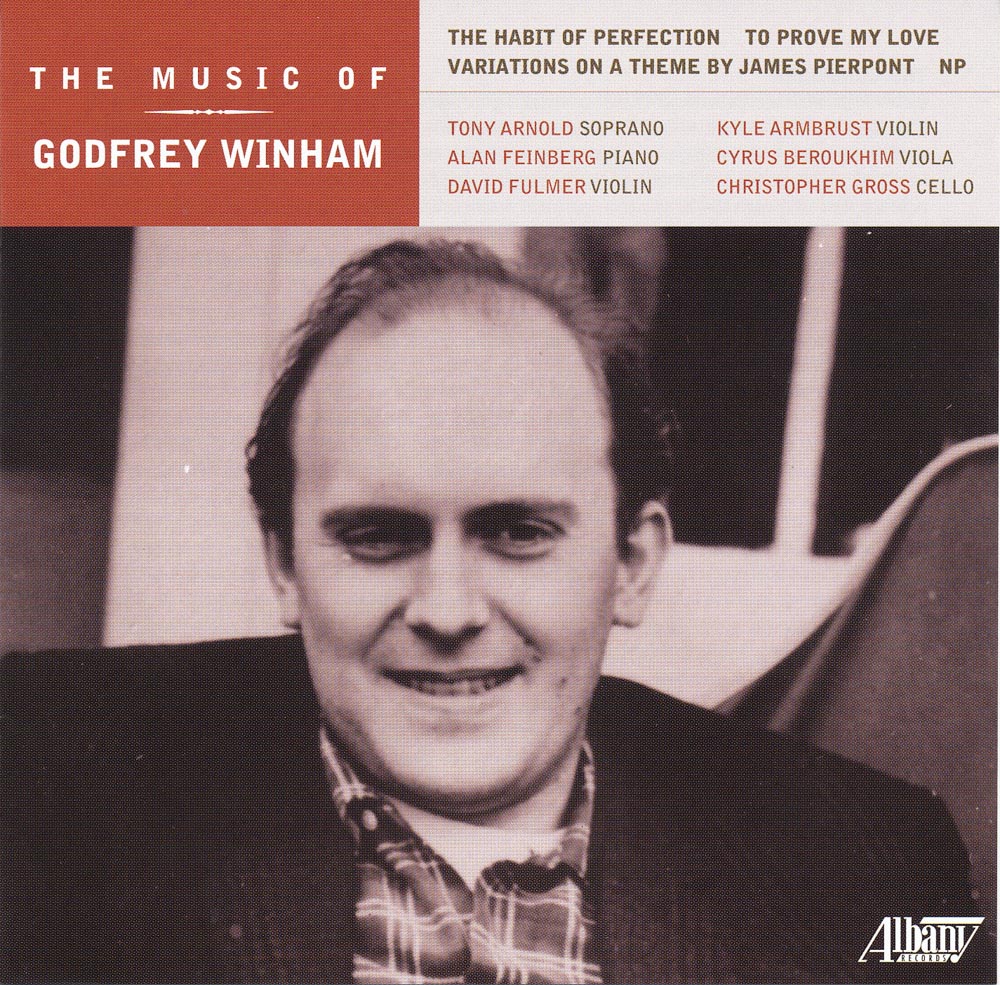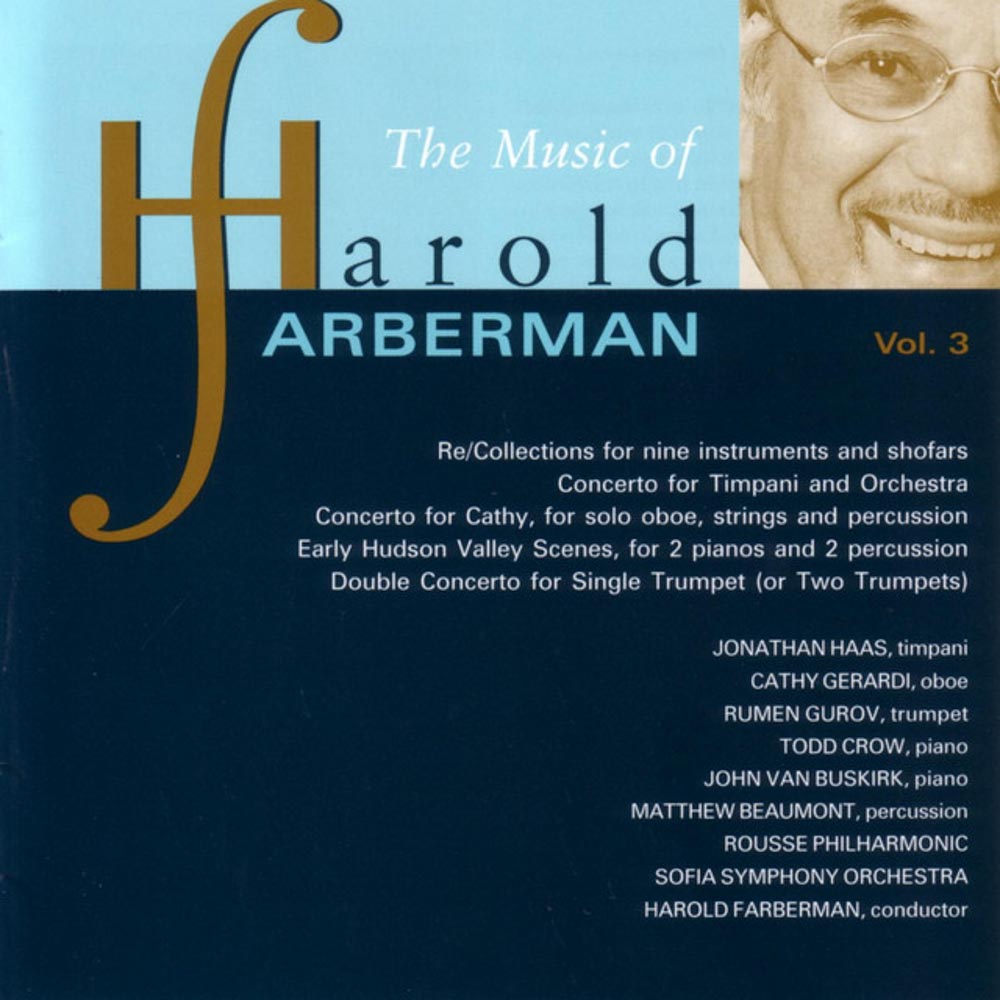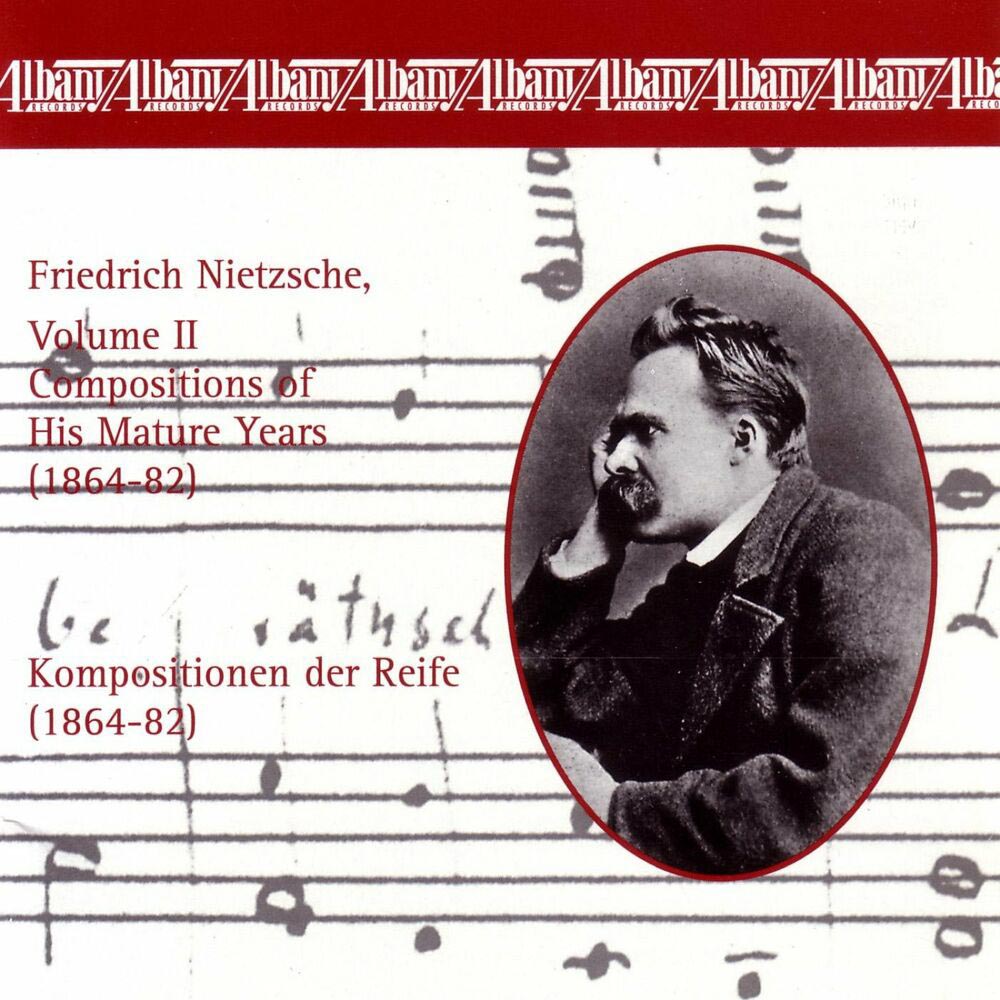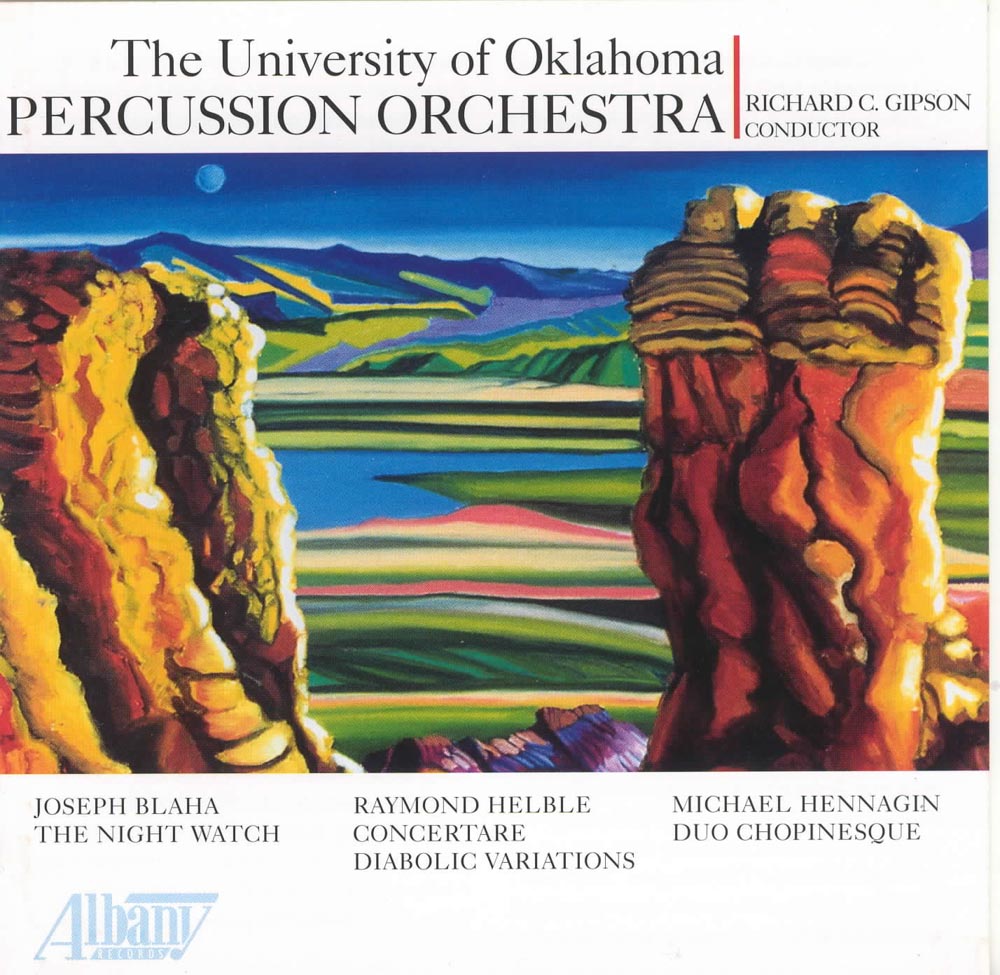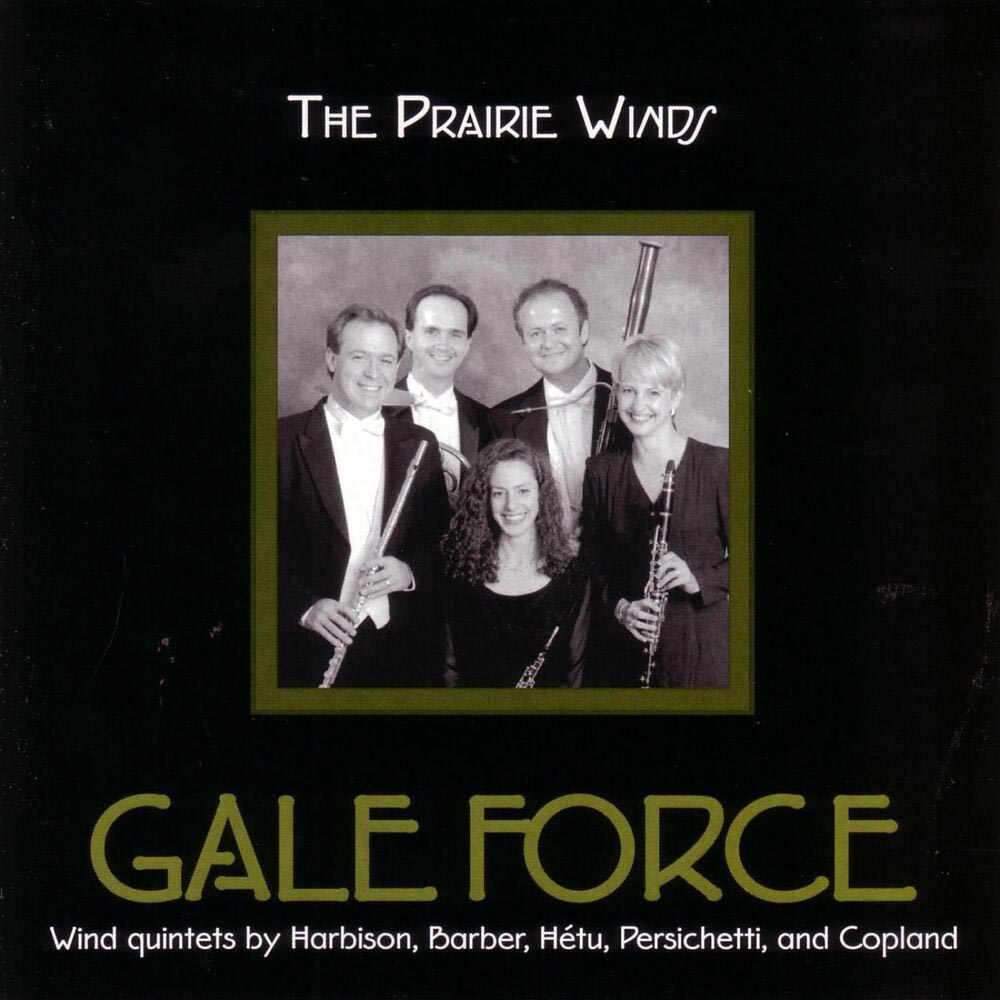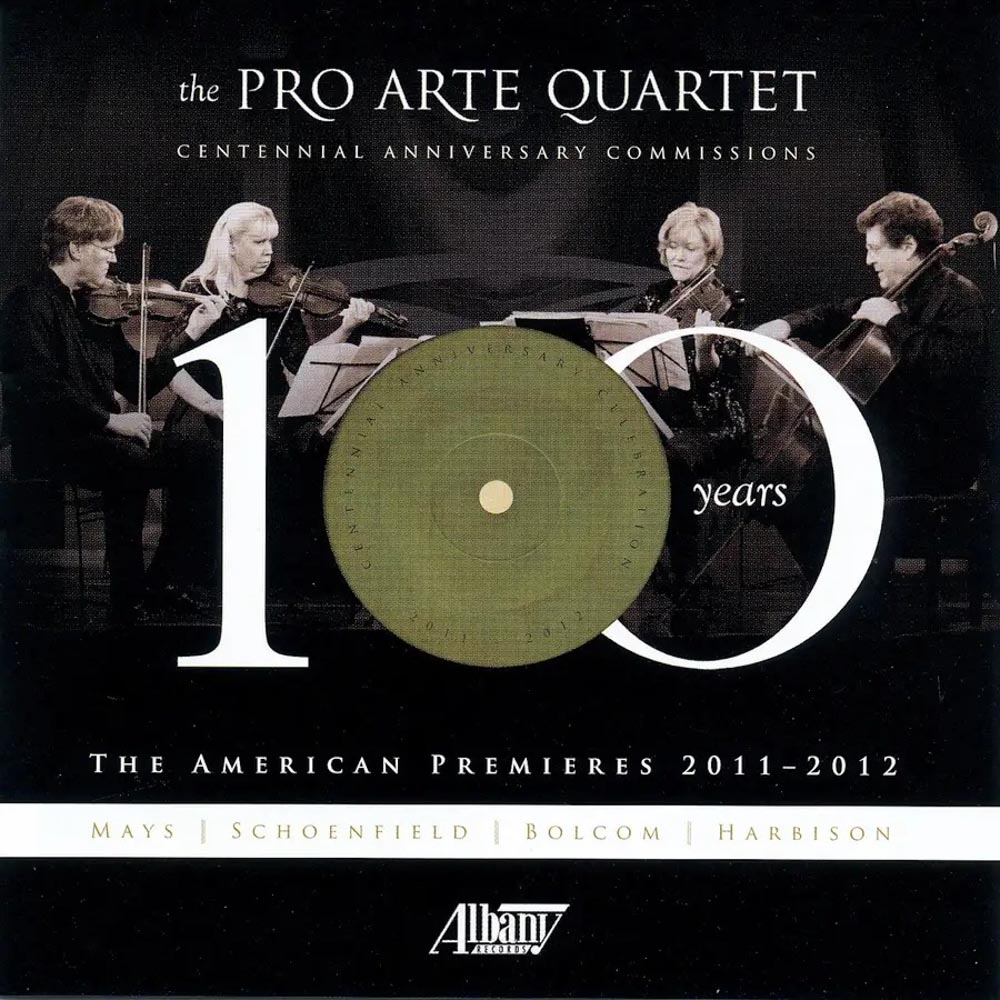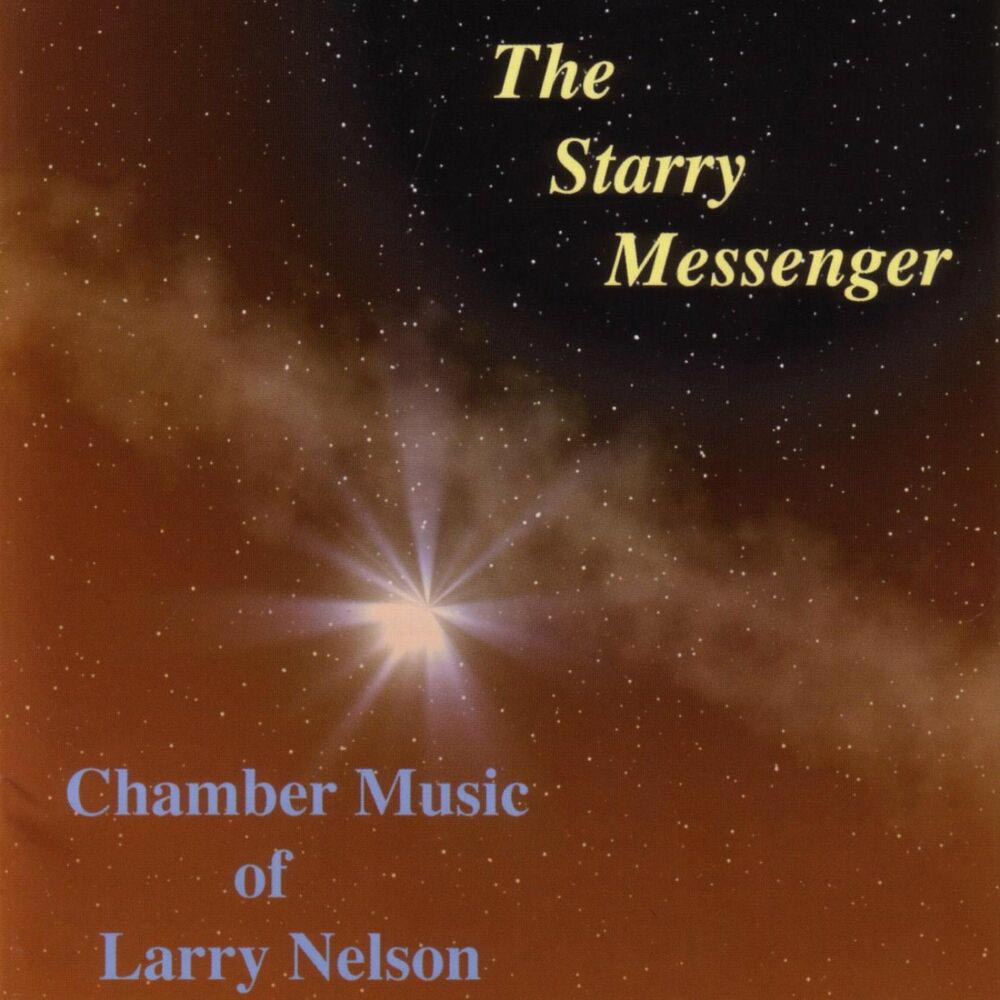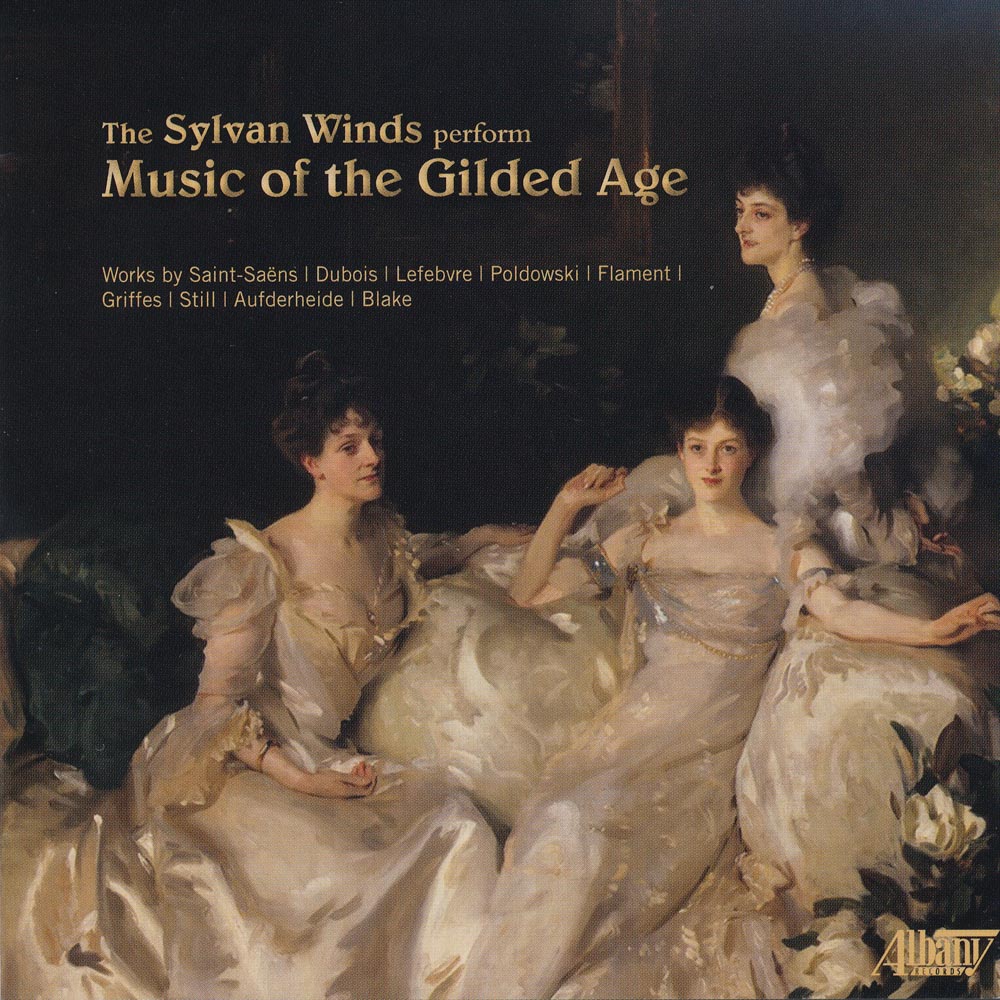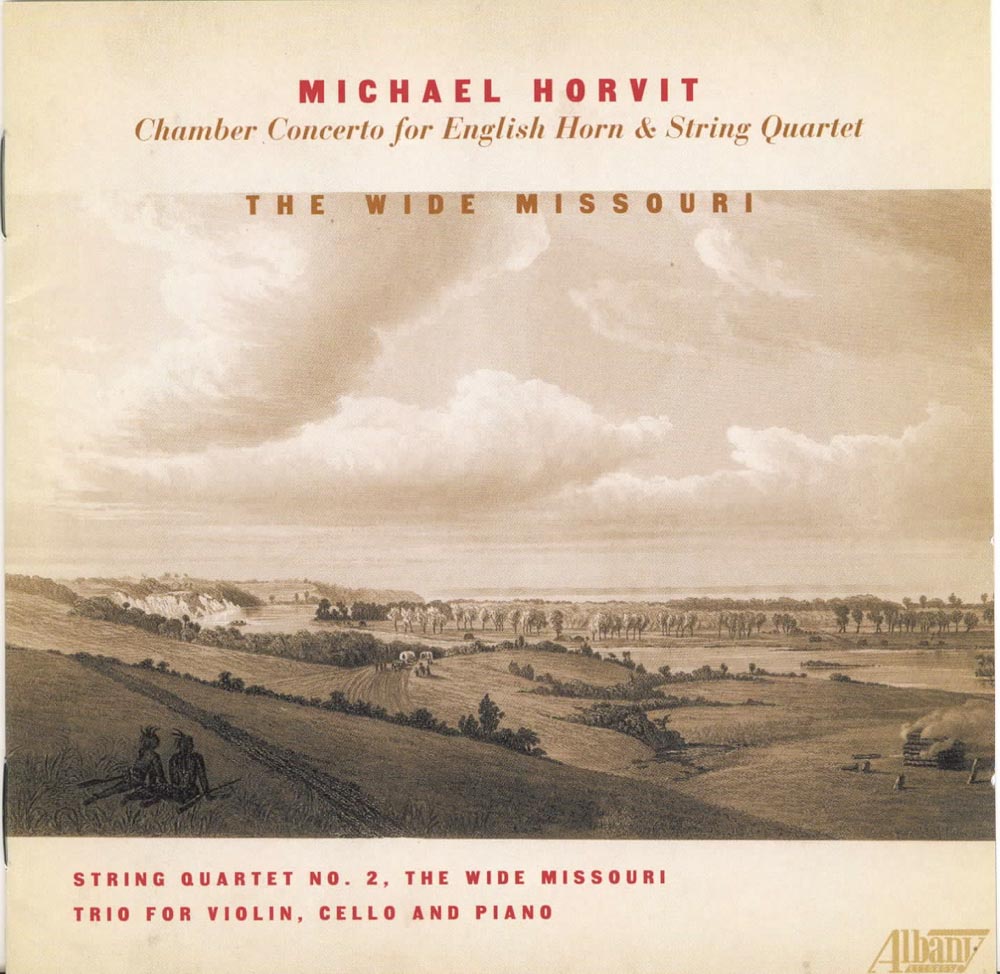Catalog #: TROY1436
Release Date: September 1, 2013ChamberInspired by Virgil's Aeneid, the three works comprising Gates of Silence are connected but independent. Each is a passage that echoes with relevance today our fallen cities, our physical passages and in our personal interactions with each other and our destinies. The third piece, Dido Refuses to Speak, sets poetry by National Book Award finalist, Linda Gregerson. As a composer and performer, Susan Botti's eclectic background and experiences are reflected in her music. Theatre and the visual arts play a formative role in the aesthetic of her work, which have encompassed traditional, improvisational and non-classical composition and singing styles. A recipient of numerous grants and awards, Botti specializes in the performance of contemporary music by composers of diverse styles, in addition to her own works. She studied at the Berklee School of Music and the Manhattan School of Music, where she currently is on the composition faculty.
Catalog #: TROY1680
Release Date: September 1, 2017ChamberDistinguished composer Adolphus Hailstork studied at Michigan State University, the Manhattan School of Music, Howard University, and the American Institute at Fontainebleau. He has written numerous works for chorus, solo voice, piano, organ, chamber ensembles, band, and orchestra. His music has been performed by orchestras around the country and he has received commissions from performing organizations such as the Cincinnati Opera, the Houston Choral Society, and the Atlanta Festival, among many others. He is on the faculty at Old Dominion University. This recording, his fifth for Albany Records, concentrates on music for strings and includes a trio as well as works for string quartet. The Ambrosia Quartet (Simlon Lapointe and Mayu Cipriano, violin; Beverly Kane Baker, viola; and Rebecca Gilmore, cello) are all members of the Virginia Symphony Orchestra and have been performing as a quartet for more than a decade both in Virginia and around the United States.
Catalog #: TROY1676
Release Date: July 1, 2017ChamberAssem3ly is a dynamic trio championing chamber music of our time for flute, piano, and percussion. Comprised of flutist Lindsey Goodman, pianist Anne Waltner, and percussionist Scott Christian, Assem3ly commissions and performs new works from established and emerging composers and this recording is typical of their programming. Distinguished composer Joseph Schwantner's Taking Charge opens the recording, followed by Bolamkin, a work by John Allemeier. Ty Alan Emerson's Caliban Ascendent precedes the final work on the recording by Randall Woolf: Between Me, Myself, And The Lamp Post. The performances sparkle with intensity and commitment. A recording of music for an unusual, but very effective grouping of instruments.
Catalog #: TROY1540
Release Date: February 1, 2015ChamberDuring the past several years, the Corona Guitar Kvartet (Per Dybro Sorensen, Volkmar Zimmermann, Kristian Gantriis and Mikkel Andersen) has specialized in forging personal relationships with composers of varying styles, and of performing their works. The selections on this, their sixth CD, reflect the diversity of contemporary music styles performed by the Kvartet and most of it was written especially for them by composers taken with the the Kvartet's openness to differing musical visions, its willingness to play composers whose music its members admire, and its dedication to understanding each work on its own terms. The composers include Charles Norman Mason and Dorothy Hindman, faculty members at the University of Miami's Frost School of Music; Edward Green, a faculty member at the Manhattan School of Music; Franco Sbacco, a faculty member at the State Conservatory of Music Santa Cecilia of Rome; and Fred Frith, a faculty member at Mills College.
Catalog #: TROY0417
Release Date: November 1, 2000ChamberBorn in Barcelona, Spain, Leonardo Balada graduated from the "Conservatorio del Liceu" of that city and the Juilliard School in 1960. He studied with Vincent Persichetti, Aaron Copland and Igor Markevitch. Since 1970 he has been teaching at Carnegie Mellon University in Pittsburgh, where he is University Professor of Composition. Another volume of his music appears on Albany TROY343.
Catalog #: TROY1749
Release Date: November 1, 2018ChamberThe spirit of exploring new, and newly rediscovered, music is fully captured in this recording of American music for viola. The music ranges from the late 19th Century to today, yet it shares a common theme: a flowing lyricism that expresses the viola's rich vocal character. Of special interest is the first known American composition for viola (Benjamin Cutter); and the first composition for viola by an American woman (Blanche Blood). Violist Andrea Houde has performed as soloist, chamber musician, and in orchestras in the United States, Canada, Europe, and Asia. A graduate of the University of Memphis and the Peabody Conservatory, Ms. Houde is on the faculty at West Virginia University and the artist faculty of the Interlochen Arts Camp. Her colleague, pianist Sun Jung Lee is a graduate of the Oberlin Conservatory, the Moores School of Music at the University of Houston, and West Virginia University. In addition to her performing career, she serves as staff accompanist at West Virginia University.
Catalog #: TROY0159
Release Date: June 1, 1995ChamberThe Arditti Quartet is a phenomenal string quartet. They play new music as if it were Haydn. You will be awed by the performances they bring to this group of young composers from California. This disc is for you if you really enjoy contemporary music, contemporary chamber music, or contemporary American chamber music.
Catalog #: TROY0273
Release Date: July 1, 1998ChamberThe real draw for this disc is the presence of the great trumpet player, Adolf Herseth from the Chicago Symphony Orchestra. For indeed, he is one of a kind, a true master recognized for his brilliant musicianship by his colleagues and audiences the world over. "Quite possibly the most dazzling player on his instrument in the world today," says Donal Henahan in The New York Times. Mr. Herseth was appointed Principal Trumpet of the Chicago Symphony in 1948 immediately after graduating from the New England Conservatory. A native of Minnesota, he also holds a degree from Luther College in Decorah, Iowa. During World War II he served as a bandsman at Iowa prefight school and ended his military service with the Commander of the Philippine Sea Frontier in the South Pacific. His years with the CSO have included numerous solo appearances and concerts with many of the world's finest conductors, not to mention work on some of the finest recorded performances in the repertoire. The Asbury Brass Quintet is based in Chicago. Mr. Herseth, who joins them in the performance of the Bohme Sextet, has touched the lives of each one of the members of the Quintet's players, either as a teacher, colleague or mentor.
Catalog #: TROY1467
Release Date: January 1, 2014ChamberThe Buckley Chamber Players, named in honor of its home venue, Amherst College's Buckley Recital Hall, was founded in 2008. Its members are on the faculty at Amherst and Smith College and the University of Massachusetts. Playing a varied repertoire, it is dedicated to a close collaboration with composers who write works for the ensemble. This recording is representative of their concerts, and includes three works written for them, two of them by composers on the faculty at Amherst (Eric Sawyer and Lewis Spratlan).
Catalog #: TROY0777
Release Date: July 1, 2005ChamberThe Chamber Music Conference and Composers' Forum has reached the venerable age of 60, and it is very appropriate indeed that the Conference celebrates, at least in part, with a new recording of music played by members of its outstanding and musically vibrant faculty. Every summer for these past six decades, the Conference itself has been a celebration of the love of music making, involving Conference faculty and participants from around the world in a heady fusion of musical activities: public concerts, including frequent world premieres, professionally-coached rehearsals and intensive study sessions, lectures and seminars addressing a wide range of topics. From the beginning in 1945, participation by composers has been an integral feature of the Conference. Among the founders were composers Otto Luening and Richard Donovan. Among the many distinguished composers who have been in residence over the years are Henry Brant, Elliott Carter, Stephen Hartke, Jennifer Higdon, Libby Larsen and Steven Stucky. The recording presents a small but highly representative sample of what the Conference is all about. Vermont composer and Bennington College faculty member Allen Shawn (brother, incidentally, of playwright/actor Wallace Shawn) has been a Resident Composer and frequent guest at the Conference. His string quartet Sleepless Night and the Wind Quintet (a commission by long-time participants) are fine examples of his lyrical style. Donald Crockett, from Los Angeles, was in residence at the Conference in 1999, and since 2002 has been the Conference's Senior Composer-in-Residence. The Ceiling of Heaven was commissioned by the Conference. Fans of contemporary American chamber music will recognize many of the performers from their recordings (cellist Maxine Neuman, a member of the Conference faculty, is a specialist in this material) and will greatly enjoy this significant release.
Catalog #: TROY0259
Release Date: October 1, 1997ChamberKarel Husa's String Quartet No. 4 (Poems) was commissioned by the National Endowment for the Arts for the consortium of the Colorado, Blair and Alard Quartets. The works was completed in the spring of 1990 in Ithaca, New York. A collection of six poems, the String Quartet No. 4 explores possibilities of unusual sonorities in a virtuosic writing. When Lucy Mann of the Naumburg Foundation requested a new work for the Colorado Quartet in 1983, Ezra Laderman thought the proposal over for about a week, and it was during this time that he realized that his Quartet No. 6 could be the first work in a triptych. He felt ready now to take the same material he had used in No. 6, music inspired by four youthful personalities, and place it "in the midst of life" as Laderman says. The four-note-motive of NO. 6 strides out again at the beginning of No. 7 - only now it is inverted, so that it reaches muscularly upward. The String Quartet 1982 by Mel Powell was composed for the Composers String Quartet, the Sequoia String Quartet and the Thouvenel String Quartet under a consortium commission from the National Endowment for the Arts, which, at the same time, commissioned this quartet and quartets from Milton Babbitt and Elliott Carter. Powell's Quartet is played through as a single movement with clearly differentiated subdivisions.
Catalog #: TROY0803
Release Date: January 1, 2006ChamberThe Scottish-born Judith Weir began her career as an oboist and took composition lessons with John Tavener and Robin Holloway. Her music is performed in Europe and the United States. Her works reflect her diverse interests in narrative, folklore and theatre, with British folk music a strong influence. This release is an excellent sampling for those unfamiliar with her work: The Consolations of Scholarship is a highly-compressed opera, based on 14th century Chinese Yuan plays, where all the characters are played by one multi-voiced singer. The Piano Concerto, where the soloist is partnered by nine solo string players, emulates the scale of the early Mozart concerti; King Harald's Saga, is a "Grand Opera in Three Acts" for solo soprano voice, depicting the attempted invasion of England by Norway in 1066. Inspired by Emily Dickinson, Musicians Wrestle Everywhere is a one-movement concerto for ten instruments, reflecting the "street environment" of Weir's own urban neighborhood. You'll find Weir to be a highly original compositional voice.
Catalog #: TROY0114
Release Date: July 1, 1994Chamber"I composed The Dancing Bird in response to a need expressed by Francesca Vanasco for a number of original works for the unusual combination of flute, cello, bass and vibraphone that make up Alborada Latina, the chamber ensemble for Latin American Music," says Thad Wheeler. "The Dancing Bird was begun after I received a diagram of a Spanish Sevillanas from Basilio Georges. I used the 47 bar form as a framework for "Sevillanas Magicas," a Spanish sevillanas with an American accent. I hen went on to write "Bulerias," "Purple Night," and "Scherzo Merenque," integrating structural and developmental devices used by Beethoven with flamenco and Venezuelan rhythms and my own melodic and harmonic materials. The last piece composed for The Dancing Bird was "Glimmerglass." I wrote this piece while spending a great deal of time house-hunting in Cooperstown, New York in the late winter-early spring."
Catalog #: TROY0950
Release Date: September 1, 2007ChamberDaniel McCarthy is a composer whose music defies categorization in the usual sense. With his background in opera, chamber music, rock and jazz, his music is full of rhythmic energy and excitement, with a fresh appeal for today's audiences. As USA Today's David Patrick Stearns has written, "(his works) have the vigor of pop music and the spontaneity of jazz." This recording is a hybrid surround sound recording and can be played on all cds players as well as super audio equipment.
Catalog #: TROY0148
Release Date: March 1, 1995ChamberCurtis O.B. Curtis-Smith was born in Walla Walla, Washington in 1941. His teachers included David Burge, Alan Stout, Ken Gaburo, and Bruno Maderna. He has taught composition at the University of Michigan and is currently Professor of Music at Western Michigan University in Kalamazoo. In 1994, Leon Fleisher performed his Piano Concerto for the Left Hand and Orchestra with Neemi Jarvi and the Detroit Symphony Orchestra. Dennis Russell Davies and the American Composers Orchestra have performed his Great American Symphony (GAS!) This disc presents a fine cross section of Mr. Curtis-Smith's chamber music. Note that Dennis Russell Davies is the piano soloist in the Sextet for Piano and Winds, a work that was written for, and is dedicated to him.
Catalog #: TROY1069
Release Date: January 1, 2009ChamberThis recording contains the work of six contemporary composers either currently active in, or with some connection to the American Midwest. The works were composed during a six-year span, from 2001-2007 and are performed by Stacey Barelos, a DMA student in piano and composition at the University of Wisconsin-Madison. Noted for her presentation of music of the 20th and 21st centuries, her performances of the music of Henry Cowell have attracted special recognition and acclaim.
Catalog #: TROY1057
Release Date: December 1, 2008ChamberTwo internationally renowned soloists, David Shifrin and Ransom Wilson, are featured in this eighth volume of Albany Records' series devoted to the music of Ezra Laderman. Laderman remarks: "I have been among those who move from writing for orchestra to chamber music, to vocal, and solo and operatic works -- feeling the need to explore and stretch my musical language as I go -- to reach for a new constellation. My most recent works for flute and clarinet attest to that and this cd clearly shows the path I have traveled."
Catalog #: TROY1155
Release Date: December 1, 2009ChamberLaderman comments, "This ninth cd with Albany Records brings me to the end of a musical exploration started October 1, 2000. This culminating cd, the final three string quartets I will ever compose represent the most recent evolution of my compositional esthetic...The excitement, the fun, the joy that composing has afforded me is due in no small measure to the unknown path traveled each morning as I sit before the blank sheet of music paper. It's a great way to spend a life. I recommend it without reservation."
Catalog #: TROY0245
Release Date: June 1, 1997ChamberGardner Read was born in Evanston, Illinois and has enjoyed a prolific and varied career as composer, conductor, teacher and author. As a high school student majoring in music he studied piano and Organ privately and took lessons in composition at Northwestern University's School of Music. During the summers of 1932 and 1933, he studied composition and conducting at the National Music Camp, Interlochen, Michigan, where in 1940, he taught composition and Orchestration. In 1932, he was awarded a four-year scholarship to Eastman, where his principal teachers were Bernard Rogers and Howard Hanson. In 1938, on a Cromwell Traveling Fellowship to Europe, he studied with Pizzetti in Rome and briefly with Sibelius in Finland, just before the outbreak of World War II. He also studied with Aaron Copland at Tanglewood in1941. From 1941 to 1948 Read headed the composition departments of the St. Louis Institute of Music, the Kansas City Conservatory of Music and the Cleveland Institute of Music. In 1948, he was appointed composer-in-residence and professor of composition at the School of Music, Boston University, retiring as Professor Emeritus in 1978. The major work on this disc, the Piano Concerto, although composed in 1973-78, had to wait until January 31, 1996 for its premiere. The performance on this disc is of that wonderful performance. Randall Hodgkinson does a terrific job.
Catalog #: TROY1264
Release Date: May 1, 2011ChamberGeorge Edwards graduated from Oberlin and then did graduate study at Princeton, where he studied with Milton Babbitt, Earl Kim and Edward T. Cone. He taught at the New England Conservatory and then moved to Columbia University in 1977 where he taught composition and theory until 2004 when he retired. George Edwards' longtime friend and colleague, the composer and theorist Fred Lerdahl, identifies three basic strands in Edwards' music. First, it is relentlessly contrapuntal. Second, Lerdahl notes that while the music is not truly serial, the works of twelve-tone composers have had a profound effect. Finally, the music shows a strong affinity for the lyrical intensity and harmonic richness of the late Romantic Austro-German repertoire. These three strands coalesce in important ways to form the essence of George Edwards' unique compositional voice. With the release of this recording, we are fortunate to have the opportunity to engage with a composer of the first order.
Catalog #: TROY1408
Release Date: April 1, 2013ChamberBorn in 1934 in London, American composer Godfrey Winham died at the age of 40. He graduated from the Royal Academy of Music and later attended Princeton where he studied with Roger Sessions. He worked at the Columbia-Princeton Electronic Music Center writing for the RCA Sound Synthesizer, which fostered his interest in this medium. From 1964 until his death in 1975, he was a pioneer and authority in the field of computer music. He also wrote music criticism and contributed to journals like Music Review and Tempo. The bulk of his writings on music, theory, logic and philosophy are at the Firestone Library of Princeton. His short life limited his actual number of music compositions, but the works on this recording are representative of his output. This is the first recording devoted exclusively to his music. Every musical work by Winham was an essay on music, showing by example the content and implications of his complex evolving philosophy of music. The music is performed by some of the best-known exponents of contemporary music, including soprano Tony Arnold and pianist Alan Feinberg.
Catalog #: TROY0688
Release Date: November 1, 2004ChamberHarold Farberman's career as a conductor has overshadowed his achievements as a composer. In fact, while a member of the Boston Symphony Orchestra, Farberman turned first to composition as a further creative outlet, which in turn led to his more visible conducting career. From the mid-fifties onward, when he composed his first work, Evolution, for soprano, French horn and seven percussionists, Farberman has never stopped creating music. Harold Farberman was born on November 2, 1929 on New York City's Lower East Side. Coming from a family of musicians (his father was the drummer in a famous 1920s Klezmer band led by Schleomke Beckerman; his brother was also a drummer) it seemed inevitable that he pursue music as a career. After graduating from the Juilliard School of Music on a full scholarship in 1951, he immediately joined the Boston Symphony Orchestra percussion section and became the youngest member of the orchestra at that time. Incidentally, Farberman has the distinction of being the only Juilliard instrumental graduate who has been invited back as a conductor of its various orchestras and as a composer - he was commissioned to write an opera for the opening of The Juilliard Opera Theater (The Losers). With a performer's knowledge of percussion instruments and a dissatisfaction with their conventional treatment, Farberman became an early advocate for the use of percussion sonorities as a major voice in compositional structures. His very first work, Evolution, written in 1954, before he began formal studies in composition, is scored for over one hundred percussion instruments and has been recorded four times, once by Leopold Stokowski. After hearing Evolution, Aaron Copland invited Farberman to study with him at Tanglewood in 1955. That short involvement with Copland strengthened Farberman's resolve to acquire more compositional skills, and during his twelve year tenure with the BSO, he earned a Masters Degree in composition from the New England Conservatory.
Catalog #: TROY0178
Release Date: January 1, 1996ChamberFriedrich Nietzsche (1844-1900) was fully conscious of his significance as a thinker who would deeply influence the direction of philosophical inquiry of future generations. His reputation as a philosopher is firmly established, but before he engaged himself fully as a philosopher, he had already created a substantial output as poet and composer. Musical composition preceded his involvement with philosophy and is therefore usually considered to be of little importance for an understanding of his thought. Nietzsche himself, however, considered it important that at least some of his music should be known in order to avoid misunderstandings of his basic intentions as a philosopher. In a letter from October 1887, he wrote: "...there has never been a philosopher who has been in essence a musician to such an extent as I am." However, when it came to his music, he did not display his usual assertion of superiority. In the same letter he says: "Even so, it is possible that I might be a thoroughly unsuccessful musician." During his lifetime, his compositions were not accepted as significant, either by his friends or by a wider public. Even after his name had become universally known, his compositions have either remained unknown or have only been accepted as biographical curiosities. Most of his music was written between the ages of 13 and 22. It is the purpose of these recordings to make the sound of these compositions accessible, so that a judgment concerning their style and their value can be made by the listener without having to rely on the judgment of others, even if those others are of the stature of Richard Wagner and Hans von Bulow. This first volume contains music Nietzsche composed before the age of 20. This disc contains a very detailed commentary on his emotional and intellectual development. Since he composed without a teacher, without regular instruction, and with very little external encouragement, this music is also a vivid demonstration of his innate impulse for self-expression, of his independence and of his willingness to accept risk and potential failure.
Catalog #: TROY0181
Release Date: June 1, 1996ChamberThis second volume of compositions by Friedrich Nietzsche begins with works he wrote in 1864, just before his twentieth birthday. During this year, he completed his schooling and commenced studies in philology and theology at the University of Bonn. It was the most productive year in his career as a composer, at least if one considers the quantity of finished works. These include his only completed piece of chamber music, a fantasy for violin and piano, and a song cycle. With the beginning of his university studies, his desire to express himself through music diminished. During his studies in Bonn and later in Leipzig, he wrote only a few occasional compositions: one song, a few small choral works, and some incomplete sketches for larger works. His connection with music took another, more fateful turn through his encounter with Richard Wagner. It was in Leipzig, in November 1868, that Nietzsche met Wagner for the first time. The ensuing friendship with the master and his wife became a matter of pivotal importance for his life, and really provided the impetus for his literary career. On his further development as a composer, however, this relationship seems to have had little influence. After a hiatus of several years during which Nietzsche did not write music at all, there followed a relatively short period, between 1871 and 1874, when he again took up composition. At that time, he had established himself as Professor of Philology at the University of Basel.
Catalog #: TROY0567
Release Date: March 1, 2003ChamberJoseph Blaha is currently assistant professor of music and director of bands at Roanoke College in Salem, Virginia. In 1983, he enrolled as a doctoral student in composition at the University of Oklahoma and studied with Michael Hennagin earning a DMA in 1991. Raymond Helble, a native New Yorker, studied at the Eastman School of Music with Sam Adler, Wayne Barlow and Joseph Schwantner. A highly polished finish, elaborate motivic development, contrapuntal dexterity, and a concentrated intensity of expression, mark Helble's work, whether he uses tonal, serial, modal, or atonal materials to fashion his work. Born in The Dalles, Oregon, Michael Hennagin composed in virtually every medium including music for film, television, and stage. His broad repertoire includes instrumental and vocal solos, various chamber ensembles, symphonic band, orchestra, and a large body of choral music for which he is widely recognized. He joined the faculty of the University of Oklahoma in 1972 and retired in 1992 to devote full time to his active composing schedule. He died suddenly in June 1993.
Catalog #: TROY0401
Release Date: September 1, 2000ChamberNorth America's foremost wind quintet, the Prairie Winds, combines the artistry of five virtuoso musicians from the Chicago Symphony and the faculties of the University of Illinois, Oklahoma State University, and Wheaton Conservatory. The music in this collection represents some of the finest wind quintet music written by North American composers. The richness and diversity of the past century's music is evident through the warmth and lyricism of the quintets of Barber, Persichetti and Copland, the mischievous tongue waggling and technical challenge of John Harbison's writing, and the pathos of Jacques Hetu's Quintette. All the music is powerful, comical, and personal, but most of all, it is the sounds of 20th century North America.
Catalog #: TROY1469-70
Release Date: December 1, 2013ChamberTo celebrate their 100th anniversary, the Pro Arte Quartet commissioned works from four distinguished American composers (Walter Mays, Paul Schoenfield, William Bolcom and John Harbison), which were given their world premiere performances in 2011-2012. The Pro Arte Quartet was founded in 1911-12 by teenage prodigies who were students at the Brussels Conservatory. Stranded in the USA in 1940 by the outbreak of World War II, the Quartet became established at the University of Wisconsin-Madison, where they became the first professional string quartet in residence at an American university. In all, the Quartet has commissioned more than 100 new works so it was fitting that the centerpiece of their centennial celebration include commissions, performances and recordings of these new works.
Catalog #: TROY0698
Release Date: November 1, 2004ChamberJeffrey Mumford was born in Washington, D.C. and has been conspicuously active in that city's musical life. His music has been performed throughout the United States and abroad and the present CD was preceded by one on the CRI label, similarly devoted to his chamber music. Honors, awards, fellowships and commissions have come to him from many prestigious sources. Following a year as composer-in-residence at Bowling Green State University's College of Musical Arts, Mumford joined the faculty of the Oberlin College Conservatory of Music in the fall of 2000. Two of Mumford's orchestral works - the celebratory fanfare Within a cloudburst of echoing brightness (1995) and Amid the light of quickening memory (2003) were commissioned and introduced by the National Symphony Orchestra under Leonard Slatkin. These titles are characteristic for Mumford. He has shunned traditional sonatas and symphonies in favor of music that tends to define its own shape and substance, and his titles allude to the impressions or moods behind the creative impulse. References to light, radiance and resonance are as abundant in his titles as references to angels in the works of Einojuhani Rautavaara and Augusta Read Thomas. Mumford has stated that his music in general is "inspired by cloud imagery, light and the unique aspects of the energy that characterize the various times of day." While his works are generated from such impressions, they are not tone poems in the conventional sense of "painting pictures" or delineating action, and listeners would be well advised to avoid seeking or expecting specific images in them.
Catalog #: TROY0776
Release Date: September 1, 2005ChamberLarry Nelson was born in Broken Bow, Nebraska in 1944. Since 1971 he has served on the faculty of the School of Music at West Chester University, where he teaches theory and composition. He is also co-director of the Evenings of New Music Series that has served since 1972 to bring new music to the college campus. He has established close ties with musical audiences throughout the country but with a particular focus around Philadelphia and throughout Pennsylvania. He has composed works for solo instruments, chamber ensembles, orchestra and the electronic medium. In describing his music Nelson says, "I utilize mathematical strategies or formal systems and I use computer technology in the creation of my music while, at the same time, my music is very much grounded in traditional concepts of lyricism and harmonic motion." A reviewer described Nelson's music as "having an open and easy approach to tonality- neither insisting on it nor rejecting it. Musical intuition is supplemented by the exploration of formal systems but always in a songful manner." Here's another, specific description of one of the works on this new release, Danceable Haze: "This one movement work expresses some of my recent explorations of body-felt rhythm, our natural foot-tapping connection to the music. The music moves from fast, highly syncopated ensemble chords to slow vamp-oriented music under virtuosic solos and duos."
Catalog #: TROY1755
Release Date: January 1, 2019ChamberThe tradition of performing the repertoire on this recording came directly from French wind instrumentalists who were brought to New York in 1905 by Walter Damrosch to join the New York Symphony. The arrival of these performers, trained at the Paris Conservatory, was a turning point in the development of woodwind playing in this country. Flutist Georges Barrère was a key figure in this evolution. He became a tireless advocate of the music of his adopted country, insisting that all programs of his Wind Ensemble include at least one American work. He consistently promoted new repertoire and was responsible for the premières of more than 150 works. The Sylvan Winds are heirs to this rich heritage, one established by Barrère and his French colleagues, and are dedicated to preserving and continuing it. This recording will help listeners to appreciate our inherited classical music tradition. The Sylvan Winds, established in 1982, are an integral part of New York City's cultural offerings and have earned both critical and audience acclaim for their spirited performances and innovative programming.
Catalog #: TROY0446
Release Date: July 1, 2001ChamberNew York-born Sylvia Glickman earned bachelor's and master's degrees in performance from the Juilliard School where she was a piano student and received a Licentiate in Performance from the Royal Academy of Music. Her performance and composition awards include the Loeb Memorial Prize from Juilliard, a Fulbright Scholarship, the Hecht Prize in Composition from the Royal Academy and a Solo Recitalist Grant from the National Endowment for the Arts. Her music, for keyboard, voice, chamber groups, orchestra and chorus, has been performed throughout the United States, in Europe and in Israel. Carved in Courage commemorates the fortitude of the Danish people who helped to save Denmark's Jews from the Nazis. Am I a Murderer? is a cantata for voice and chamber ensemble. The singer speaks and sings the text written by Frank Fox, translator of the diary of Calel Perechodnik, a Polish Jewish policeman. Perechodnik was promised by the Nazis that his family would be saved if he helped to round up Jews for deportation. He assisted the Germans, but lost his family. His diary was found after he committed suicide. The Walls are Quiet Now reflects emotions evoked by the sight of a memorial wall outside the Grnnwald S-bahn station in Berlin, Germany. This wall honors the memory of the Jews of the city, transported from that station to concentration camps.
Catalog #: TROY0851
Release Date: July 1, 2006ChamberMichael Horvit is Professor of Composition and Theory at the University of Houston Moores School of Music. For 25 years he served as music director at Congregation Emanu El in Houston. During his studies at Yale University, Tanglewood, Harvard University and Boston University, Horvit's teachers were Aaron Copland, Lukas Foss, Walter Piston, Quincy Porter and Gardner Read. In other words, Horvit is one of the last links between the great American Symphonic School and today's music. Not surprisingly one can hear echoes of this illustrious past in such works as the Cullen Overture and Concerto for Brass Quintet and Orchestra (on TROY265, works for orchestra), resplendent pieces which conjure up great open vistas and exuberant optimism. This exceptional disc of chamber music further reveals his traditionalist style, particularly in the String Quartet No. 2, "The Wide Missouri," whose thematic material is mostly based on one of his favorite folksongs, Shenandoah. This is truly heartfelt American music. More of Horvit's music can be heard on TROY134 and TROY533.
Catalog

©2024 Albany Records. All rights reserved. | Privacy Policy | Website by PARMA Creative.
